 312-704-0771
312-704-0771
Recent Blog Posts
How Can Creditors Show That Debtors Have Committed Bankruptcy Fraud?
 It is estimated that bankruptcy fraud costs creditors billions of dollars each year. Bankruptcy fraud is a serious offense that can come with harsh penalties. However, creditors may be less worried about the laws that debtors have violated than about the losses they experience due to these actions. It is important for creditors to be able to identify instances of bankruptcy fraud so that they can take appropriate legal action. In some cases, creditors may be able to request that a bankruptcy case be dismissed, or they may be able to have the automatic stay lifted so that they will be able to proceed with the collection of debts.
It is estimated that bankruptcy fraud costs creditors billions of dollars each year. Bankruptcy fraud is a serious offense that can come with harsh penalties. However, creditors may be less worried about the laws that debtors have violated than about the losses they experience due to these actions. It is important for creditors to be able to identify instances of bankruptcy fraud so that they can take appropriate legal action. In some cases, creditors may be able to request that a bankruptcy case be dismissed, or they may be able to have the automatic stay lifted so that they will be able to proceed with the collection of debts.
Forms of Bankruptcy Fraud That Creditors May Address
Creditors may be able to show that debtors have committed bankruptcy fraud in one or more of the following ways:
- Material misstatements on bankruptcy petitions or schedules - If a debtor provides incorrect information on the forms submitted when they file for bankruptcy—such as listing false information about their assets or income—creditors may be able to show that the debtor committed bankruptcy fraud. To do this, creditors will need to obtain copies of the debtor's original bankruptcy petition and schedules as well as any amended versions of these documents. Creditors should then review these documents closely to look for any discrepancies between what was originally stated and what is true.
Proactive Steps Creditors Can Follow to Address Debtor Delinquency
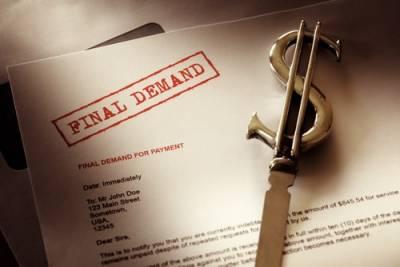 No creditor wants to deal with debtor delinquency, but it is an unfortunate reality of doing business. For banks, credit card companies, and other creditors who are facing debtor delinquency, there are steps that can be taken to mitigate the situation. By taking action at the first sign of debtor delinquency, including when payments are made late, creditors can work with debtors to find solutions that will ensure that debts can be repaid, and they can take steps to protect their interests and minimize potential losses.
No creditor wants to deal with debtor delinquency, but it is an unfortunate reality of doing business. For banks, credit card companies, and other creditors who are facing debtor delinquency, there are steps that can be taken to mitigate the situation. By taking action at the first sign of debtor delinquency, including when payments are made late, creditors can work with debtors to find solutions that will ensure that debts can be repaid, and they can take steps to protect their interests and minimize potential losses.
Responding to Signs of Delinquency
When a creditor sees indicators that a debtor may be struggling to make payments, they can take multiple steps to address the issue, avoid future delinquency, and ensure that they can recover what is owed. These steps include:
- Communicate with the debtor. It is important for a creditor to open the lines of communication with the debtor as soon as possible. In some cases, delinquency may have been the result of an honest mistake or misunderstanding, and a simple conversation can help resolve the issue. By communicating with the debtor, a creditor can discuss the delinquent debt and come up with a plan to repay it. Additionally, regular communication will help build trust between the creditor and the debtor, which is important in maintaining a good working relationship.
When Is a Debtor Considered to Be Judgment Proof?
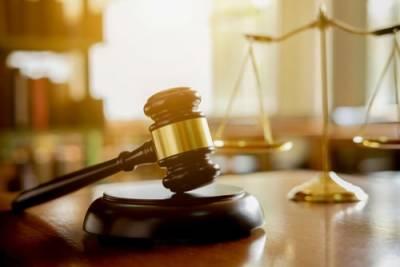 Creditors need to be able to collect debts that are owed to them, and there are a number of options available in situations where debtors fail to make payments as required. However, there may be some situations where a debtor may be judgment proof or collection proof, which will affect a creditor's ability to recover the amount owed. By understanding the criteria that must be met for a debtor to be considered judgment proof, creditors can determine their best options for collecting debts.
Creditors need to be able to collect debts that are owed to them, and there are a number of options available in situations where debtors fail to make payments as required. However, there may be some situations where a debtor may be judgment proof or collection proof, which will affect a creditor's ability to recover the amount owed. By understanding the criteria that must be met for a debtor to be considered judgment proof, creditors can determine their best options for collecting debts.
Factors That Determine Whether a Debtor Is Judgment Proof
The income a debtor earns and the assets they own will determine whether they are judgment-proof. Generally, if a person does not earn enough to make payments toward their debts while also meeting their ongoing needs, and they do not have any non-exempt assets that may be seized and liquidated, they will be collection proof.
Wage garnishment limits may be considered when determining whether a debtor has disposable income that may be used to pay debts. Federal law states that the maximum amount that can be garnished is 25 percent of a person's or the amount they earn that is above 30 times the federal minimum wage. If a person earns a weekly after-tax income of $217.50 or less, none of their wages may be garnished. Also, only certain types of income are eligible for garnishment, and income earned through Social Security, unemployment benefits, other public benefits, or child support cannot be garnished.
Weighing Loan Modification or Debt Collection Options as a Creditor
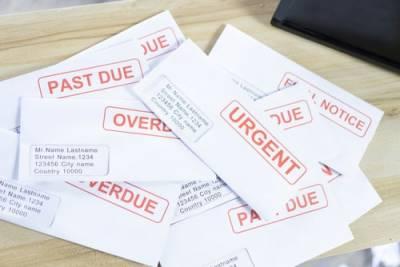 A creditor's business model is reliant on its ability to receive payments from debtors. When debtors fail to make payments as required, creditors will need to determine the most financially beneficial methods for collecting what is owed. If a debtor has defaulted on a loan, a creditor may pursue a number of different debt collection actions. However, there may be some situations where agreeing to loan modifications with the debtor will allow ongoing payments to resume, and a creditor may be able to avoid the financial losses and complications related to collecting debts.
A creditor's business model is reliant on its ability to receive payments from debtors. When debtors fail to make payments as required, creditors will need to determine the most financially beneficial methods for collecting what is owed. If a debtor has defaulted on a loan, a creditor may pursue a number of different debt collection actions. However, there may be some situations where agreeing to loan modifications with the debtor will allow ongoing payments to resume, and a creditor may be able to avoid the financial losses and complications related to collecting debts.
Benefits and Drawbacks of Different Debt Collection Methods
Following a default, creditors may have a number of different options for collecting debts, including:
- Using a debt collection agency - Sending a debt to collections may allow a creditor to receive payments, but this can take time as debt collectors attempt to contact debtors and set up payment arrangements. A debt may also be sold to a collection agency or another company, although this will often result in a loss.
UPDATE: What Are the Statutes of Limitations for Debts in Illinois?
 Originally published: October 30, 2019 -- Updated: July 28, 2022
Originally published: October 30, 2019 -- Updated: July 28, 2022
Update: In addition to understanding the time limits that apply in debt collection cases, creditors will need to know about the procedures they will need to follow to take legal action against a debtor within the applicable statute of limitations. By pursuing a legal judgment against a delinquent debtor, a creditor can ask the court to order debts to be repaid, and different methods may be available for collecting what is owed, including wage garnishment or liens against a debtor’s property.
To initiate a lawsuit against a debtor, a creditor will need to file a complaint in the applicable circuit court, which will typically be the court in the county where the debtor lives. This complaint will detail the amounts owed by the debtor, and it will ask the court to enforce the debtor’s obligations. The creditor will then need to serve a summons to the debtor. This document, which notifies the debtor of the lawsuit and informs them of when they will need to appear in court, may be served to the debtor by a sheriff or process server. After receiving the summons, the debtor must file an appearance with the court and an answer either confirming or denying the claims made in the complaint. If the debtor fails to respond correctly within 30 days, the creditor may receive a default judgment, which will allow them to take action to collect the debts owed.
How Can a Creditor Make a Claim in a Bankruptcy Case?
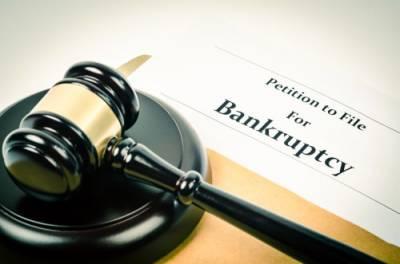 Creditors have a variety of options for collecting debts owed to them by debtors. However, these efforts may become more difficult if a debtor files for bankruptcy. A debtor may be able to discharge certain types of debts by completing the bankruptcy process. However, assets seized during a Chapter 7 bankruptcy may be liquidated to repay some of the debts owed, or a debtor may make payments toward their debts through a Chapter 13 bankruptcy repayment plan. To ensure that they can receive repayment during the bankruptcy process, a creditor will need to demonstrate that they have a valid claim against the debtor.
Creditors have a variety of options for collecting debts owed to them by debtors. However, these efforts may become more difficult if a debtor files for bankruptcy. A debtor may be able to discharge certain types of debts by completing the bankruptcy process. However, assets seized during a Chapter 7 bankruptcy may be liquidated to repay some of the debts owed, or a debtor may make payments toward their debts through a Chapter 13 bankruptcy repayment plan. To ensure that they can receive repayment during the bankruptcy process, a creditor will need to demonstrate that they have a valid claim against the debtor.
Filing a Proof of Claim
Creditors can show that they are owed money by a debtor by submitting a proof of claim form. Depending on the type of claim, a creditor may be prioritized when receiving payments from the debtor during the bankruptcy process, or they may only be able to receive payments after higher-priority debts have been paid. To submit a proof of claim, a creditor must file Form 410 with the bankruptcy court where the case is being heard. This form will include the following information:
How Should Mortgage Lenders Respond to Requests for Short Sales?
 Creditors often need to deal with situations where debtors fail to pay debts that are owed. This can be a significant concern for mortgage lenders who need to protect their interests in property used to secure loans. Debtors who are unable to make mortgage payments may take steps to sell a home. However, there are many situations where a home may be underwater, and the value of the property may be less than the amount the debtor owes to the creditor. In these cases, homeowners may seek to complete a short sale. They will usually need to receive approval from their lender to do so. Creditors will need to determine how to respond to short sale requests as they take steps to protect their financial interests and minimize their losses.
Creditors often need to deal with situations where debtors fail to pay debts that are owed. This can be a significant concern for mortgage lenders who need to protect their interests in property used to secure loans. Debtors who are unable to make mortgage payments may take steps to sell a home. However, there are many situations where a home may be underwater, and the value of the property may be less than the amount the debtor owes to the creditor. In these cases, homeowners may seek to complete a short sale. They will usually need to receive approval from their lender to do so. Creditors will need to determine how to respond to short sale requests as they take steps to protect their financial interests and minimize their losses.
Response and Approval of Short Sales
When a debtor requests a short sale, they will typically seek to sell the home at the current market value, and they will ask their mortgage lender to forgive any deficiency. That is, if the home sells for less than what is owed on the loan, the seller will not attempt to collect the remaining balance from the debtor. While it may seem more financially beneficial for a lender to pursue a foreclosure, the expenses and complications involved in this process may prevent the lender from recovering a significant amount of what is owed. A short sale may be a simpler and easier way to recoup as much of the balance of the loan as possible.
When Do Creditors Need to Provide Debt Collection Validation Notices?
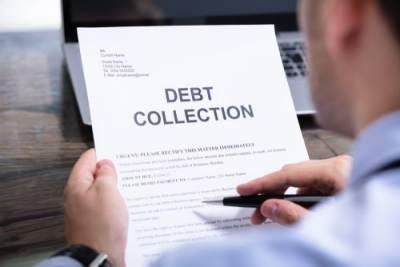 For creditors, the ability to collect debts from debtors is crucial. Creditors loan money to debtors with the expectation that these amounts will be repaid, and when debtors fail to make payments as required, creditors will need to take action to protect their rights and financial interests. However, creditors are required to follow certain procedures during the debt collection process, and federal and state laws address the types of actions they are allowed to take and the requirements they must meet. Under the Fair Debt Collection Practices Act (FDCPA), creditors are required to provide debt collection validation notices in certain situations. Understanding the requirements that apply in these cases can ensure that a creditor will be able to avoid any actions that may affect their ability to collect the debts owed to them.
For creditors, the ability to collect debts from debtors is crucial. Creditors loan money to debtors with the expectation that these amounts will be repaid, and when debtors fail to make payments as required, creditors will need to take action to protect their rights and financial interests. However, creditors are required to follow certain procedures during the debt collection process, and federal and state laws address the types of actions they are allowed to take and the requirements they must meet. Under the Fair Debt Collection Practices Act (FDCPA), creditors are required to provide debt collection validation notices in certain situations. Understanding the requirements that apply in these cases can ensure that a creditor will be able to avoid any actions that may affect their ability to collect the debts owed to them.
Validation Notice Requirements for Debt Collectors
Debt collectors may include personnel working directly for creditors, collection agencies, or debt buyers. When a debt collector first contacts a debtor, they are required to provide certain information in writing. This information is known as a debt collection validation notice. This notice must include:
When Should a Mortgage Lender Accept a Deed in Lieu of Foreclosure?
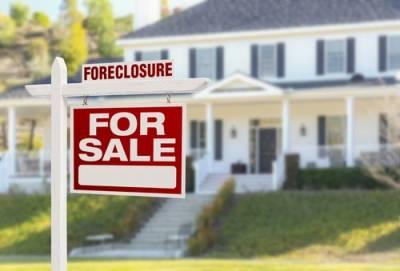 There are many situations where creditors will need to take action to address the nonpayment of debts. For mortgage lenders, these situations often lead to foreclosure, which can be a complicated and expensive process. However, there may be other options that will allow a lender to take possession of a property, including negotiating an arrangement in which a homeowner will turn over the deed to the home as a way to avoid foreclosure. By understanding when a deed in lieu of foreclosure may be advantageous, a lender can make sure they are taking the correct steps to protect their financial interests.
There are many situations where creditors will need to take action to address the nonpayment of debts. For mortgage lenders, these situations often lead to foreclosure, which can be a complicated and expensive process. However, there may be other options that will allow a lender to take possession of a property, including negotiating an arrangement in which a homeowner will turn over the deed to the home as a way to avoid foreclosure. By understanding when a deed in lieu of foreclosure may be advantageous, a lender can make sure they are taking the correct steps to protect their financial interests.
Benefits and Drawbacks of a Deed in Lieu of Foreclosure
Debtors may have multiple options for addressing delinquent mortgage payments. A mortgage lender may be able to negotiate loan modifications with a homeowner that will allow them to maintain ownership of the home and continue making affordable payments. If continued ownership of the home will not be possible, a debtor may seek a short sale in which the home will be sold for less than the amount owed on the mortgage. However, the best solution may be an agreement in which the debtor will voluntarily turn over the deed to the home to the lender. This may consist of a “cash for keys” arrangement in which the lender will pay a certain amount, and the debtor will vacate the home by a certain date. In some cases, the lender may even agree to lease the property to the debtor on a temporary or long-term basis.
What Is the Replevin Process When Repossessing a Vehicle?
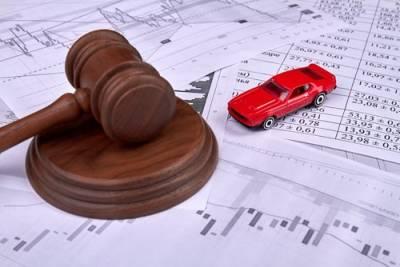 Creditors often need to address situations where debtors default on loans. For auto lenders, these situations require a timely response, since a vehicle used as collateral for a loan may be moved, concealed, or damaged by a debtor, and a creditor will want to recover the collateral quickly to protect its financial interests. When repossessing a vehicle, a creditor may use the replevin process, and they will need to follow specific procedures and ensure they are complying with their legal requirements.
Creditors often need to address situations where debtors default on loans. For auto lenders, these situations require a timely response, since a vehicle used as collateral for a loan may be moved, concealed, or damaged by a debtor, and a creditor will want to recover the collateral quickly to protect its financial interests. When repossessing a vehicle, a creditor may use the replevin process, and they will need to follow specific procedures and ensure they are complying with their legal requirements.
Pursuing a Replevin Action
In some cases, creditors may be able to complete a repossession by asking a debtor to voluntarily turn over a vehicle, or they may take possession of a car that is in a public location. However, if a repossession would involve a “breach of peace,” a creditor may need to use replevin. For example, if a vehicle is locked inside a person’s garage, a creditor would not be able to enter the location and take possession of the vehicle without first receiving authorization to do so.






